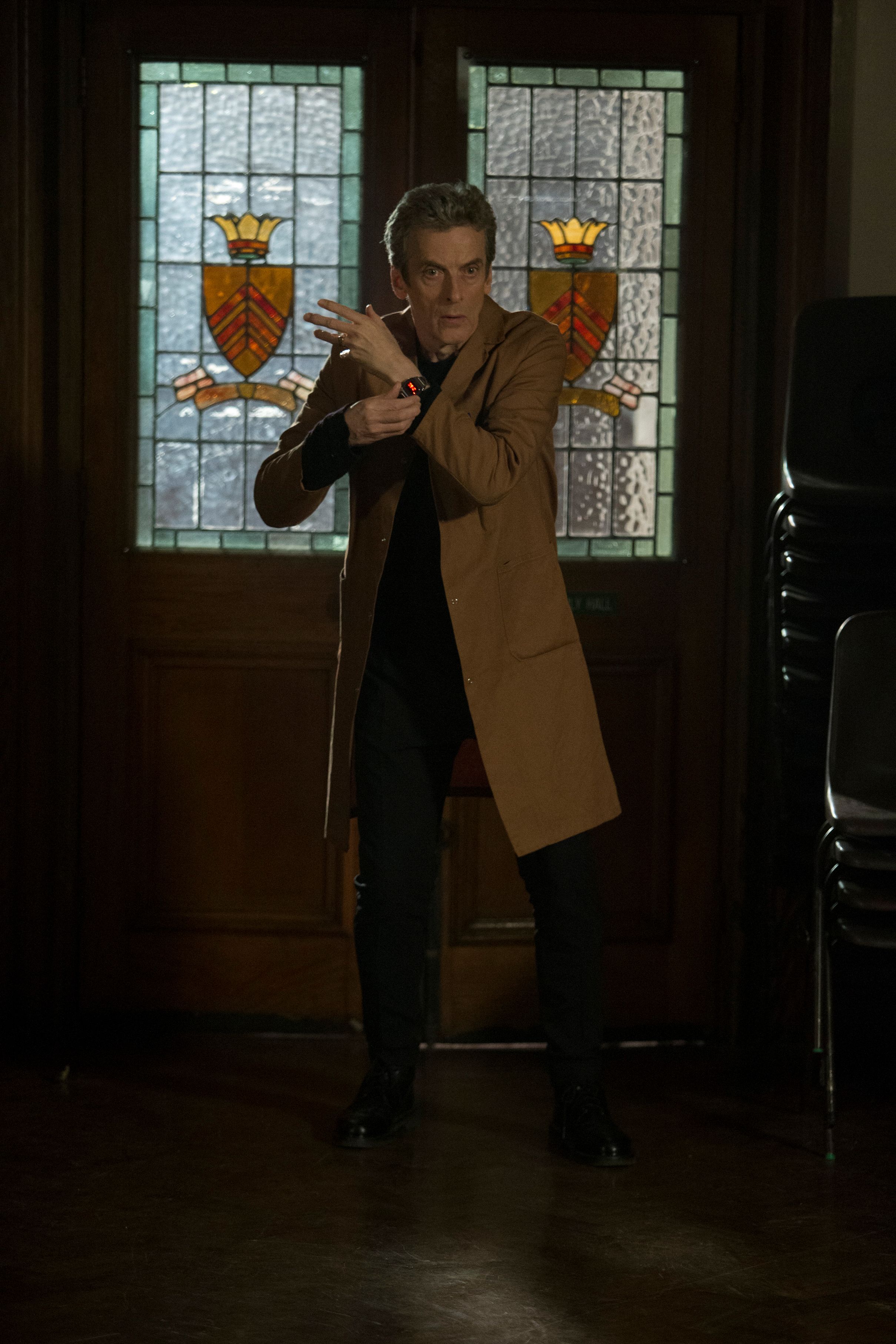In the Forest of the Night
Saturday, 25 October 2014 - Reviewed by Matt Hills
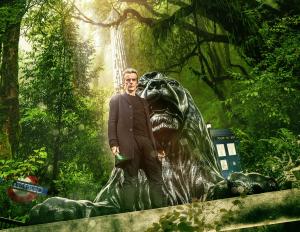
In The Forest Of The Night
Written by Frank Cottrell Boyce
Directed by Sheree Folkson
Starring Peter Capaldi, Jenna Coleman,
Samuel Anderson
Premiere 25 October, BBC One
A few weeks ago, 'Kill the Moon' sparked debates about whether Doctor Who needed to get its science right: was it science fiction or fantasy? This week there seems little room for debate: this is surely outright fantasy, from its fairytale roots through to its magical branches and leaves. Rather than gothic monsters there are glowing motes of sentience; in the place of technobabble there are “voices” that children can hear. Writer Frank Cottrell-Boyce is, of course, not only a Carnegie Medal winner for children’s fiction, he was also the writer of the 2012 Olympics Opening Ceremony, where a gigantic tree was uprooted in order to symbolize the industrial revolution’s onset. In short, Cottrell-Boyce is no stranger to the dense symbolism of trees, woods and forests, and here again he tackles nature versus technology, with the Doctor and his sonic screwdriver appearing powerless to turn back an invasion of the trees.
Almost lifting his title from a William Blake poem, Cottrell-Boyce is clearly committed to Doctor Who as an educational show. Indeed, writing in The Telegraph on Saturday August 23rd he also compared the many Doctors of the show’s history to Philip Larkin’s poem ‘The Trees’:
Perhaps part of the show’s deep appeal is that it offers this possibility of renewal, of starting again. The Doctors are like the trees in Philip Larkin’s poem, which “die too” but whose “yearly trick of looking new / Is written down in rings of grain”. “Last year is dead, they seem to say / Begin afresh, afresh, afresh."And there’s certainly a freshness to this rather unusual Who. The episode fizzes with ideas, especially when Cottrell-Boyce comes up with his own explanation of “bigger on the inside”. It’s a moment that’s sold wonderfully by Sheree Folkson’s direction. Rarely has the TARDIS console room felt as awe-inspiring as when Folkson has the camera track Peter Capaldi’s walk up the stairs and around the outer wall, effectively seeing it all through the dazzled eyes of young Maebh (Abigail Eames).
There’s also more than a touch of Malcolm Hulke’s old-school storytelling to this adventure, with the Doctor and humankind confronting a power that’s always been there – though these ‘tree devils’ aren’t quite what they seem. Meanwhile, the beautifully unsettling image of a green earth hits home with an ecological message that’s far from subtle. This authorial vision of Doctor Who is probably the closest thing to James Lovelock’s Gaia theory that TV drama has ever sustained, even edging out the classic BBC thriller, Edge of Darkness.
In some ways, though, this is anti-Doctor Who: the Doctor and Clara are ultimately on-lookers, and Missy is similarly reduced to doing little more than watching the outcome of events, albeit with surprise. The Doctor’s role in the story is definitely trimmed back: although he works out what’s going on, and helps Maebh get word out to the authorities, he still ultimately watches the trees in action with a degree of uncertainty. In contrast, Danny Pink gets much more to do than usual, showing his mettle as a leader; Cottrell-Boyce perhaps wants to demonstrate ‘ordinary’ human powers at work, whilst minimizing or cutting back on the conventional fantasy-hero’s role. And what John Tulloch and Manuel Alvarado, writing in The Unfolding Text, call one “of the recurrent motifs of Doctor Who” (p.94) is also inverted. In place of “organic” nature threatened by bad or mad scientists, science is alternatively trumped by nature’s fantastical potency. These trees run rings around both Time Lord and humankind.
But Doctor Who reimagined with a type of fairytale ambience – far more so than ever before in the Moffat era, despite previous attempts to position the show in these terms – also has certain limits. The script is sometimes in danger of becoming a touch twee, and its ending is arguably slightly weak. The brief final scene feels forced and tacked-on – there simply because another moment of emotional closure is needed. For a screenplay that has otherwise refused to play by a number of Doctor Who’s ‘rules’, this final capitulation to yet another happy ending doesn’t quite ring true.
'In the Forest of the Night' wants to revalue fairytales at the same time as reinforcing its ecological thesis. At one point, it’s suggested that forests represent a primal symbol of fear (“the forest is mankind’s nightmare”, says the Doctor), and it would have been interesting if the episode had taken more time to tease out and develop this possibility. But psycho-drama is rapidly displaced by eco-lecture. And so instead forgetting is identified as “the human superpower” (did Moffat’s ‘Listen’ riff on Cottrell-Boyce’s ‘Forest’, or was this an arboreal coincidence?). Fairy stories are shown to be less strange than the episode’s 'real' events. In this reversal, fairytales are an echo of magical reality and not just a mode of childhood fiction. Despite appearances, 'In the Forest of the Night' doesn’t merely reference fairytale archetypes; it’s an argument for the uses of enchantment and the values of the fairytale, not just in terms of making readers and audiences feel safely thrilled, but in reminding us – children and adults – of the strangeness and wonders that can exist all around us, before us and after us.
Having a Carnegie-winning writer of children’s fiction contribute to series eight was undoubtedly a press release-worthy event. But following two impressive episodes from Jamie Mathieson, especially the visually stunning and tightly coherent 'Flatline', 'In the Forest of the Night' doesn’t stand out quite as much as may have been anticipated. It is very much ‘Frank Cottrell-Boyce does Doctor Who’, and as such has a far stronger authorial voice than the show sometimes permits guest writers. Yet by reducing Clara, the Doctor and Missy to spectators gazing with wonder at a global spectacle, this story felt more reminiscent of the London 2012 Opening Ceremony than I would ever have imagined.
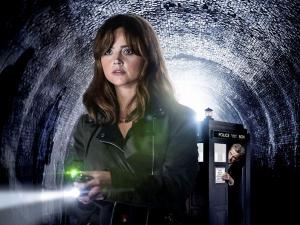
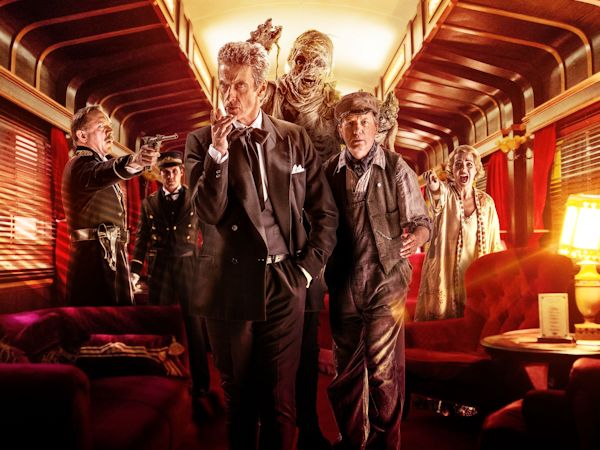
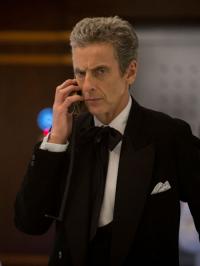 When it comes to actually saving the day, it turns out to be a pyrrhic victory. A good number of people get back home unscratched. Some of the apparently threatened passengers were only hard light holograms and so were never really at risk. But lives are lost and not just to the sinister bandaged antagonist. Other carriages with real living people are broken into and the bodies are left to float in space, most likely forever. And this is a direct consequence of the Doctor's efforts: he does get the right end result, but only after a fatal trial-and-error procedure. The Twelfth Doctor may not react too overtly to this disturbing turn of events but he surely knows he could have done something different.
When it comes to actually saving the day, it turns out to be a pyrrhic victory. A good number of people get back home unscratched. Some of the apparently threatened passengers were only hard light holograms and so were never really at risk. But lives are lost and not just to the sinister bandaged antagonist. Other carriages with real living people are broken into and the bodies are left to float in space, most likely forever. And this is a direct consequence of the Doctor's efforts: he does get the right end result, but only after a fatal trial-and-error procedure. The Twelfth Doctor may not react too overtly to this disturbing turn of events but he surely knows he could have done something different.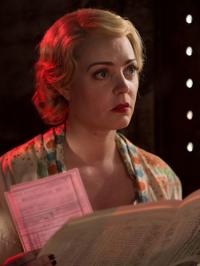 Yes, she did not storm off after all, despite all the signs being there. Clara perhaps more predictably is the voice of morality again; with her friend admitting he could not do anything until he had all the facts at hand. That they are still together is a result of their deeply held admiration and respect. Purely liking one another as most platonic friends doesn't come into it, but then how many friends are there who are come from different planets and have such contrasting life spans?
Yes, she did not storm off after all, despite all the signs being there. Clara perhaps more predictably is the voice of morality again; with her friend admitting he could not do anything until he had all the facts at hand. That they are still together is a result of their deeply held admiration and respect. Purely liking one another as most platonic friends doesn't come into it, but then how many friends are there who are come from different planets and have such contrasting life spans? 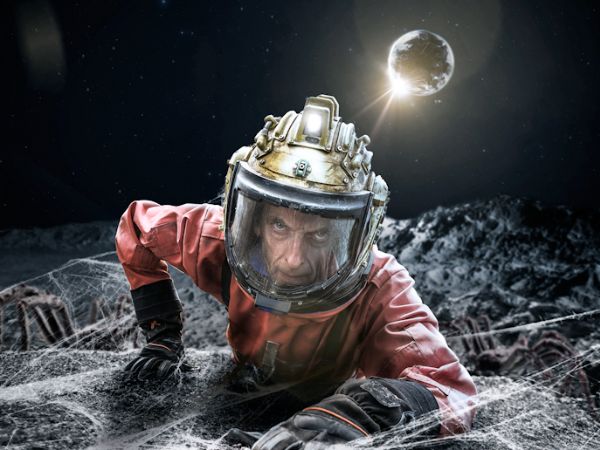
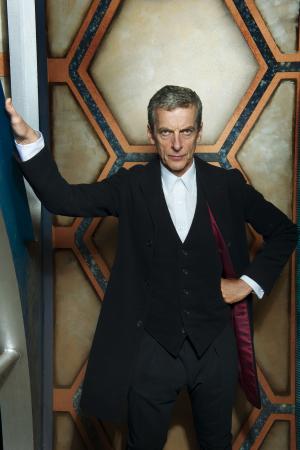 Before we get to
Before we get to 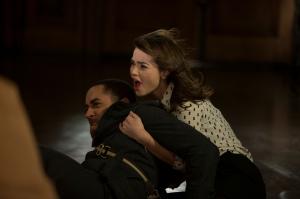 The Impossible Girl
The Impossible Girl 